Lexus explains… is a series designed to explain features, technologies and user questions related to modern vehicles. Each article provides clear, jargon-free answers, helpful tips and resources, as well as Lexus products or services that can help along the way. This article aims to demystify some of the questions surrounding electric vehicle range.
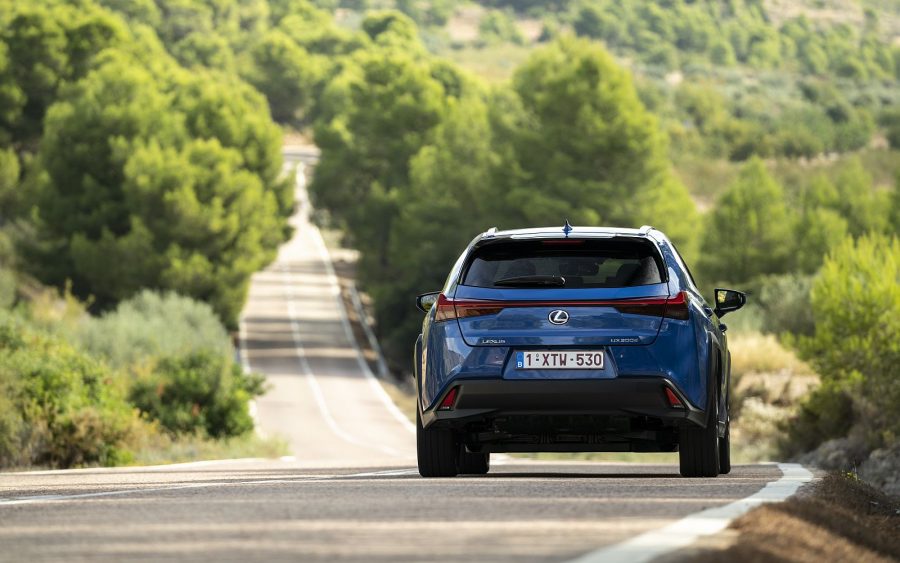
Electric vehicle range: context
The range of a vehicle can be defined as the distance it can travel before its energy source is exhausted. It is important to remember that every vehicle, irrespective of how it is fuelled or powered, has a range; and it is possible to increase that range by replenishing its energy source.
Drivers should always be somewhat aware of their vehicle’s range while travelling. But the term range anxiety has become particularly associated with drivers of electric vehicles (EVs). It stems from their concern that “the battery will run out of power before the destination or a suitable charging point is reached” (Oxford Languages).
It is true that most early mass market EVs offered smaller ranges than combustion engine equivalents, and it is likely that the modest range of these vehicles prompted a degree of concern within the driver’s mind. But is it fair to remain anxious about the range of modern EVs? Or has the indicative range and fast charging times of models such as the all-new Lexus RZ put such concerns to rest?
See what you think as we address the following FAQs –
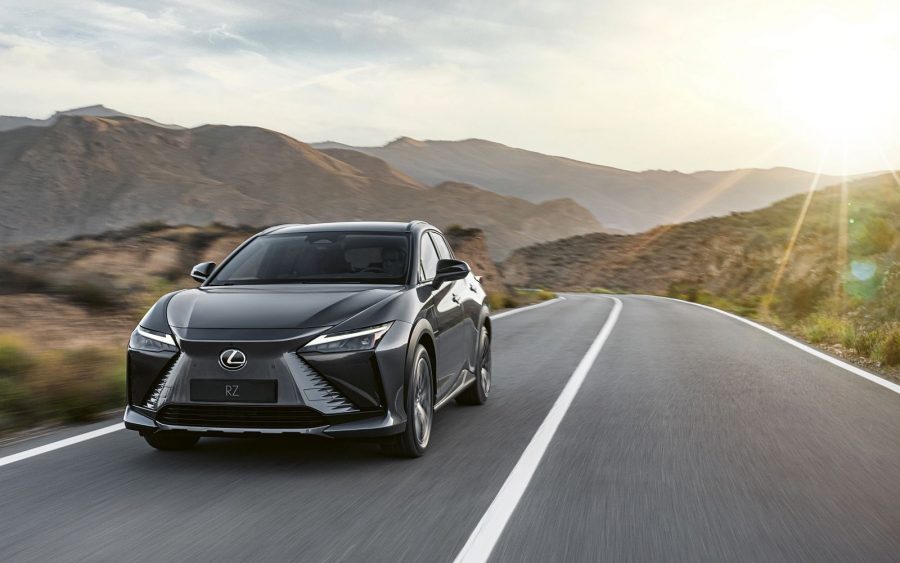
Question: How many miles can you get from a full charge?
⦁ Probably more than you think or need on a daily basis. Given that the average commuting distance in the UK is a round trip of approximately 23 miles, an entire week’s worth of travel should be comfortably within the range of most modern EVs. Using that standard, the Lexus UX 300e could complete a five-day commute and still have 80 miles to spare for the weekend
⦁ Modern EVs usually offer a range of between 150-300 miles, which should fulfil the needs of both commuters and social drivers. Putting that into context, a 200-mile range is enough to get you from Bristol to Leeds, or from London to Swansea
⦁ Drivers need not feel unduly limited by the range of their EV. As discussed in our Electric Vehicle Charging article, there are almost four times as many public charging points in the UK than traditional fuel stations. So you are never far from an opportunity to top-up on route
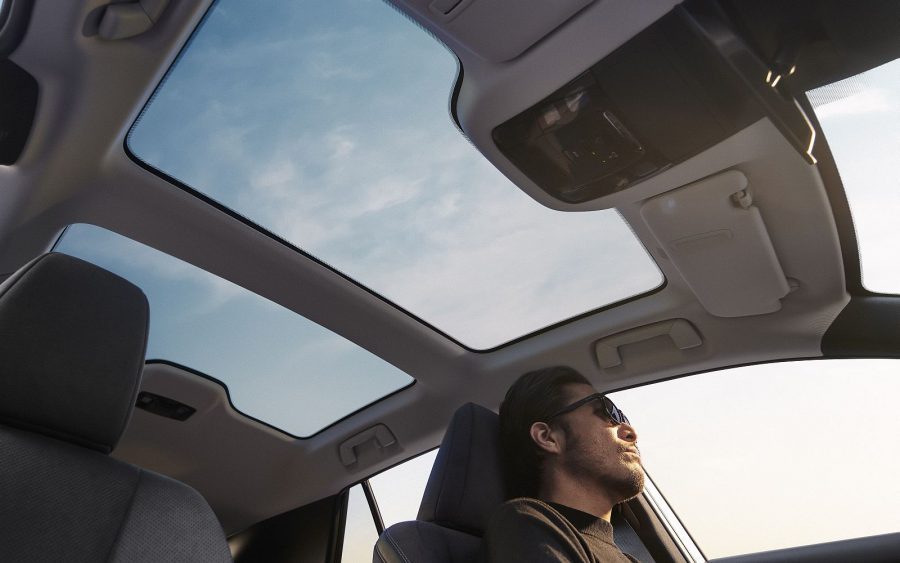
Question: Which factors affect EV range?
⦁ Temperature. EV batteries produce power through physical and chemical reactions, and the efficiencies of these reactions are negatively affected by cold weather. This results in reduced battery capacity and, in turn, a lower range
⦁ Speed. It takes more effort for an EV to reach and maintain higher speeds than it does to achieve and maintain lower speeds. This means that an EV will use proportionally more energy on the motorway than around town
⦁ Terrain. More energy is required to pull any vehicle up a hill than to coast along on the flat. However, when it comes to going downhill, EVs offer a distinct advantage over ICE cars; they actively recoup energy because the electric motors turn into generators that recharge the vehicle’s battery pack
⦁ Driving style. Smooth and gentle driving is always more efficient than an aggressive, pedal-to-the-metal driving style. Admittedly, experiencing the instant torque of an EV from a standing start can be entertaining but it will also accelerate your power consumption
⦁ Battery condition. Batteries tend to naturally deteriorate over time, which usually means that they cannot hold the same volume of charge as they did when new. Modern battery technology has reduced this effect to the point where the decline is usually imperceptible. For example, Lexus expects the new RZ’s battery to retain more than 90% of its original capacity after ten years of driving

Electric vehicle range: top tips for maximising your range
⦁ Make a conscious effort to drive as smoothly as possible, while trying to anticipate the geography of the road ahead and the movement of traffic in order to conserve your EV’s hard-earned momentum
⦁ The relationship between efficiency and speed is not linear; the energy it takes to propel a car through the air increases exponentially the faster you drive. For example, a distance that is covered at 70mph will consume around 30% more energy than the same distance covered at 50mph
⦁ Make the most of your EV’s regenerative braking system to help top-up the batteries while on the move. It’s free energy!
⦁ Battery health is optimised by trying to maintain your EV’s level of charge between 20-80% – neither empty or full. This is good practice and will condition your battery so that it can accept a full charge and deliver maximum range when needed
⦁ Plan ahead on longer journeys by using the Lexus Charging Network or Zap Map to identify public charge points that are safely within your vehicle’s range
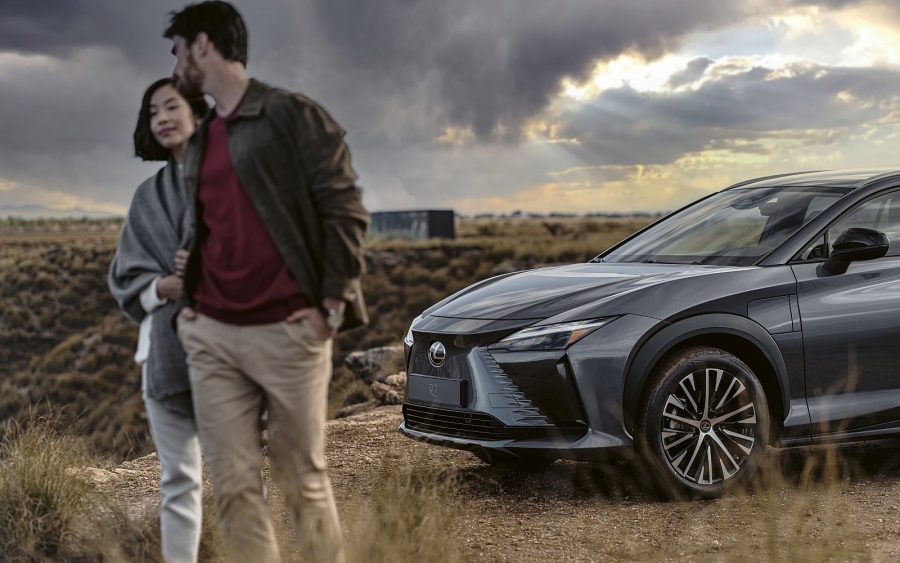
Electric vehicle range: conclusion
While some drivers have become fixated on the issue of EV range, it must not escape our notice that all vehicles have a maximum range. We have been coordinating our mobility around this fact since the day we passed our driving test, and the methods that we can employ to maximise the range of an EV are much the same as those for any vehicle with an internal combustion engine.
Most modern EVs have sufficient range to handle 99% of the journeys we make without needing to stop and be recharged. But if you need to go the extra mile (or miles) then you can always pause at one of the 32,000+ public charging points dotted throughout the UK.
Read more: Lexus explains – electric vehicle charging
Read more: Lexus explains – electric vehicle costs
Read more: Lexus explains – electric vehicle safety
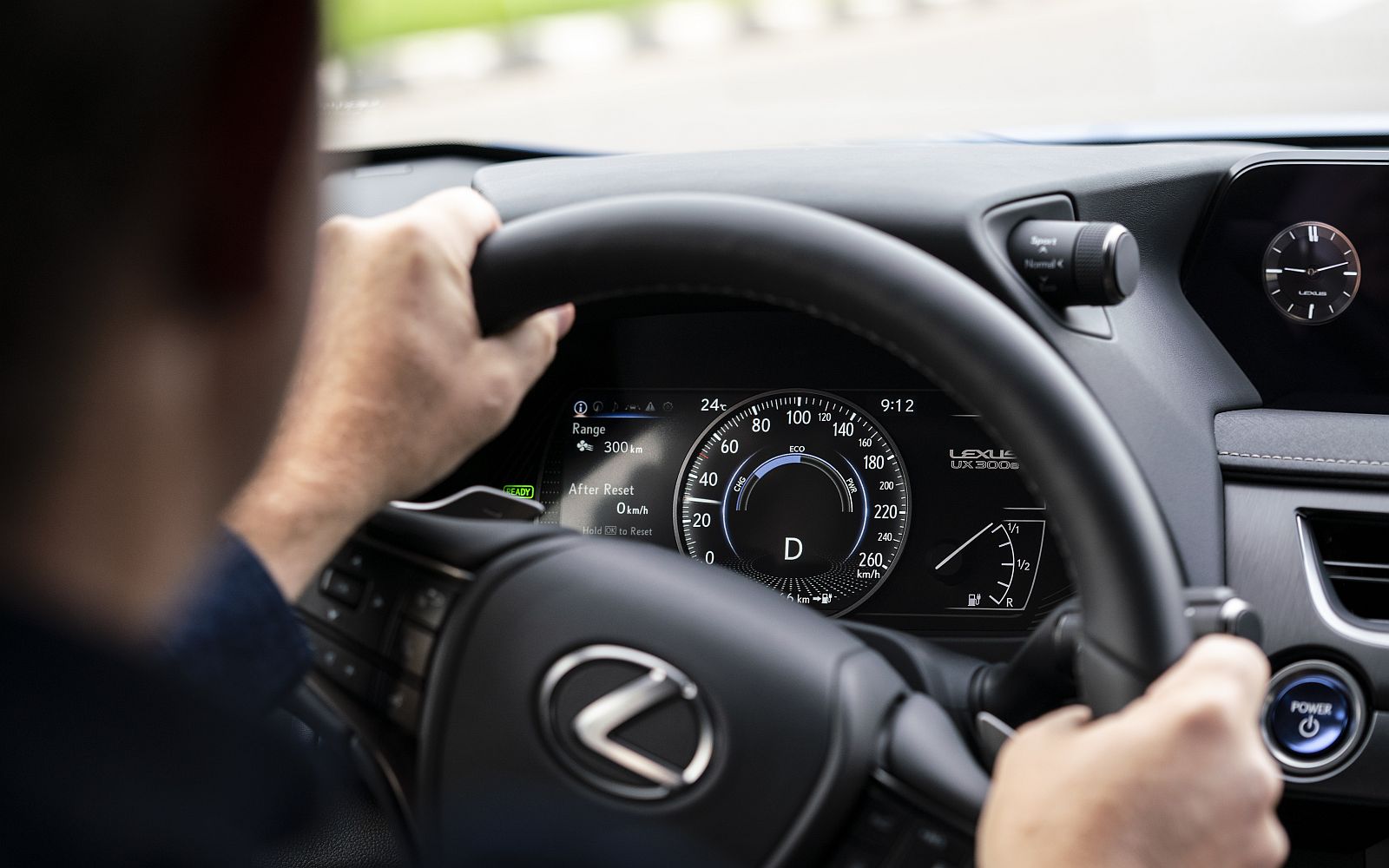
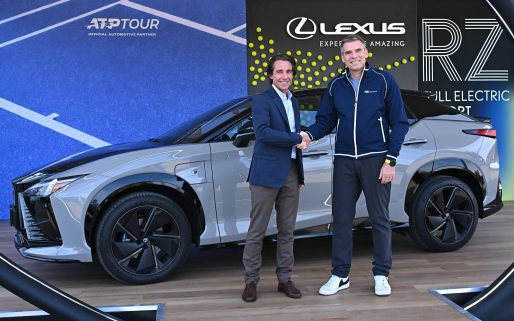
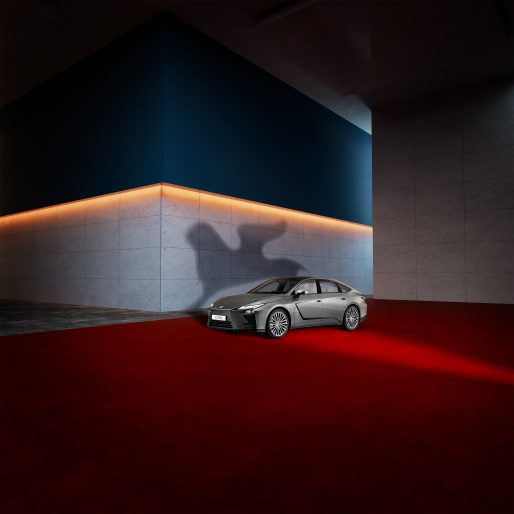
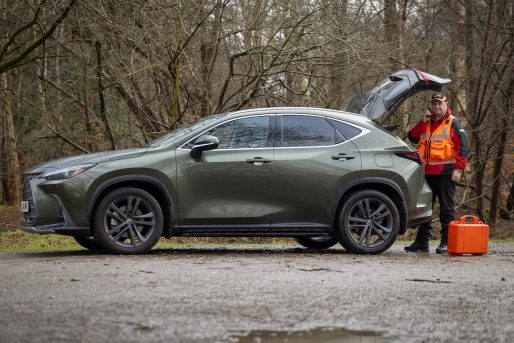
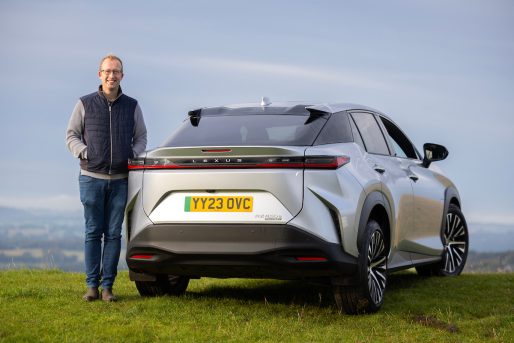
I was going to purchase a EV then i was not quite swayed by the current details , most car manufacturers quote silly ranges of electric cars , i know it is not possible to be exact due to human,s driving conditions but surely they can be a lot more exact than what they say .I purchased a NX300H and i am a careful driver using the EV mode whenever possible and i have calculated that a i have a return of 38 miles to the gallon which is a lower than i thought i would get considering the promotional figures .
Hello Russell,
Thanks for your comment.
The official fuel consumption figures for the NX 300h range from 36.6 – 39.7 mpg.
This means that you are achieving the official test figures with your vehicle.
Thanks.
That figure of 38mpg was what I expected when I purchased mine. It matched the official figures so I was pleased with that. However on one long journey I attempted to see how much more mpg I could get by driving with more awareness but still keeping up with traffic. I managed 45mpg.
The new NX appears to have a much improved mpg figure and to be fair, that was what the NX300h should have been engineered for in the first place.
I still enjoy driving the vehicle (on a pension), despite the mpg and hope to retain for quite a while longer due to its bullet proof reliability.
I own a 2002 Lexus 430. Yes that’s a 4.3 litre V8 which has covered 103,000 miles in it’s entire life and still runs like a dream, achieving 30-35 MPG on open roads.
Why should I scrap a perfectly sound and very luxurious ICE vehicle for the dubious virtues of a battery?
What is the carbon footprint of the production of a new EV including the battery?
Thanks and regards from a very satisfied Lexus owner.
Hello,
Thanks for your commitment to Lexus.
We are glad to hear that your Lexus is still going strong.
We wish you many more happy miles!
Many thanks.
I’ve heard that the yoke option on the RZ 450e will not be available during 2023 is this true?
Hello Michael,
Thanks for your interest in the RZ 450e.
One Motion Grip is not available immediately from launch, with its introduction expected in early 2024.
We will confirm full details for One Motion Grip, including pricing, in due course.
If you would like to recieve the latest information on this vehicle, please register here – https://fal.cn/3qWFM.
Thanks.
I have a lexus hybrid that I am satisfied with. I would only invest in an EV if the battery was able to recharge itself, either while travelling or with solar assistance. Filling a car with petrol has become normal. The thought of having to recharge the battery every night puts me off.
Been in the Motor Trade or 45 years seen a lot o changes some good some bad, truth is we are not ready for full EV vehicles yet they are not good enough, hybrid self charging are the best on the market at present time, having worked at Toyota Dealership for 15 years I would say they are the best in manufacture. Merry Christmas everyone….!
thanks for your comments. Its a motivation! I bought self charging UX and very happy with smooth Driving!
You don’t show any comments after 9 Dec 22. You have also removed the comment asking for a typical range for an EV travelling at 70 mph on a motorway to which you replied something along the lines of ‘We are sorry but we do not have access to this information’. Shame on you Lexus. By insulting our intelligence, you take a very real risk of losing loyal and potential customers.
Hello Roger, thanks for getting in touch.
Please be assured that we do not delete any comments that aren’t inappropriate or hold outdated information.
Thanks.
Would love to have an electric Lexus for a day. Currently driving a Lexus UX Hybrid but would be interested to see what I thought of electric model.
I recently did a 400 mile trip in my beloved 18 year old sc430 4.3 V8, without needing to refuel. I did however stop at a services in Telford, where there were 9 tesla charging points all were occupied and as far as I could tell there were 4 waiting for charging points to be come available so keep your modern technology and I will keep my old but luxurious open top cruiser which is sublime and very much underrated,
i usually change y Lexus every 3 years. but my NX300 has only done 8000 miles.
It is far more economical than my wife’s 1.6 BMW!
Perhaps I should wait electric vehicles development?
Donal Gibb
Hello Donald, thanks for your comment.
Please can you clarify your question so that we can best assist you.
Thanks.
I bought the new RZ and currently get 153 miles on a full charge. I find this quite disappointing and not the 283 miles in the brochure ore by the sales team. Any suggestions would be welcome to increase the range.
Good afternoon Paul, apologies for the delay in coming back to you.
At Lexus, we highly value any customer feedback and are paying our utmost attention to voice of the customer. Based on this and in the spirit of Kaizen, we have made a software update including several product enhancements available for the all-electric Lexus RZ 450e.
The enhancements are available via software update and include improvements of the DC-charging performance and the visualisation of the remaining range, current state of charge (SOC) and real-life energy consumption.
We’d kindly ask that you get in touch with your local Lexus Centre to find out if this applies to your Lexus RZ 450e and get it booked in.
We hope this helps, Paul.
Thank you.